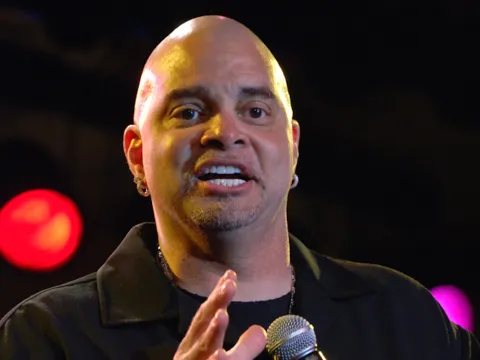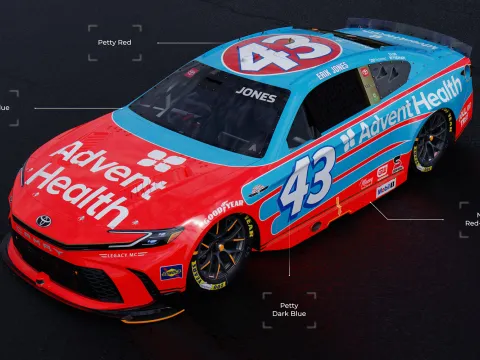- AdventHealth

Actor and stand-up comedian David Adkins, professionally known as Sinbad, recently experienced a stroke. While the details are unknown, the 64-year-old is recovering, his family says, and they are optimistic that his path to healing will be a short one.
Because Sinbad is recovering right after his stroke, his loved ones likely acted quickly to get him medical care. A friend or family member might have been familiar with stroke symptoms and recognized them, or simply noticed that something was wrong and didn’t wait to get him emergency care.
We hope that you never face this situation and that your family, friends and loved ones never experience a stroke. But it’s essential to be able to recognize stroke symptoms when you see them, and to know what to do when the unexpected occurs.
With this goal in mind, we want to empower you with important stroke information and one easy-to-remember acronym so that you’re ready to help save a life at a moment’s notice.
What Is a Stroke?
A stroke happens when blood flow is blocked to part of your brain (ischemic stroke) or a blood vessel suddenly bursts (hemorrhagic stroke). These events can cut off blood and oxygen supply to your brain and damage brain cells.
A stroke is a sudden medical emergency (this means you need to call 911 right away) that affects someone every 40 seconds in the United States, and is one of the leading causes of disability in our country. If a stroke is left untreated, or if care is delayed, long-term physical damage can occur.
Immediate Medical Care Reduces Harm From a Stroke
Strokes are often life-threatening, but it’s possible to survive them, especially when you get help quickly. When someone you know is having a stroke, call 911 right away. Getting a loved one lifesaving medical care for a stroke increases their chances of survival and reduces long-term harm from the stroke, such as difficulty walking, speaking or eating.
In a Stroke Emergency, Act FAST to Save a Life
To identify the signs and symptoms of a stroke, remember the acronym BE FAST, which stands for:
- Balance: Are there sudden problems with balance or coordination?
- Eyes: Is vision suddenly blurred or are they seeing double? Is there a sudden loss of vision in one or both eyes?
- Face: Does one side of the person’s face droop? Can they smile?
- Arms: Is one or both arms weak or drifting downward? Can the person raise both arms?
- Speech: Is speech slurred or strange? Can the person repeat a simple phrase?
- Time: Note the time symptoms started and call 911 immediately
Also, similar to heart attacks, stroke symptoms can vary between men and women. As you learn about the signs of a stroke, be sure to learn stroke symptoms that are more common in women.
When you notice stroke symptoms in a loved one, remember to note the time you first noticed that your loved one was experiencing symptoms. Knowing the time of onset can help doctors better diagnose and treat your loved one.
How We’re Keeping You Safe in the ER, Right Now
At every AdventHealth ER, we want you to feel confident in getting care for a stroke at a moment’s notice. These precautions have become our new normal in every emergency department:
- Cleaning and disinfecting all areas continuously throughout the day
- Continuously supplying team members with fresh personal protective equipment (PPE), including masks and gloves
- Screenings for staff and patients at our entrances, including temperature checks and screening questions
- Separate care areas for people with COVID-19 symptoms
- Social distancing measures in waiting areas, including chair covers and floor markers for where to sit and stand a safe distance apart from others
- Universal mask use policy for staff, patients and guests
When the unexpected happens, don’t hesitate to come to our ERs. We’re here to address stroke symptoms quickly and keep you and your family safe at every step.
Treating a Stroke With Expert Care
Fast treatment of a stroke means that our physicians and ER experts can give your loved one special medicine that helps restore blood flow to their brain and stops further damage. This quick treatment is the first step of a long journey to help your loved one — or you — heal, recover and get back to the activities you love after a stroke.
After you get ER care for a stroke, our network of neurology and neurosurgical experts can help you or a loved one heal from a stroke effectively. Our experts offer evidence-based, whole-person care that meets your needs and boosts your physical, mental and spiritual health.
Don’t Hesitate to Get ER Care for a Stroke
When you see stroke symptoms, remember the acronym FAST, and call 911 immediately to get your loved one to your closest ER.
You can take comfort in knowing that lifesaving care is close to home at any of our emergency departments in your area. Each of our emergency departments are equipped with the tools, protocols and therapies to address a stroke immediately, and our neurological experts near you are here to help restore whole-person health after a stroke.


